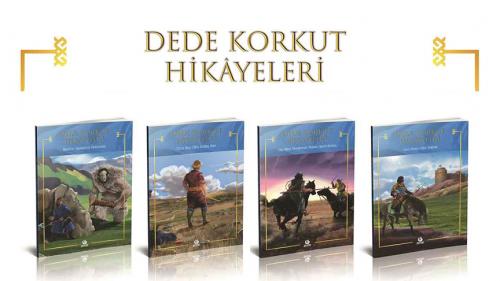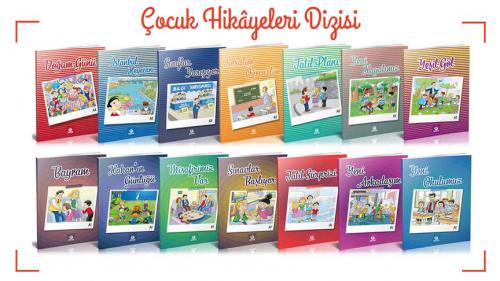Our New Story Books are Out
Our Institute, which has been conducting activities for the teaching of Turkish as a foreign language in diverse parts of the world via our cultural centers, has added new items to its arsenal of Turkish teaching materials.
Our Institute has been making its field experience available by preparing basic and auxiliary materials needed in the process of learning Turkish for different target groups in line with the principles of teaching Turkish as a foreign language and the Common European Framework of Reference for Languages (CEFR), and it has recently come up with two series, Çocuk Hikayeleri (Children's Stories) and Dede Korkut Hikayeleri (Stories of Dede Korkut).
Çocuk Hikayeleri (Children's Stories)
The series has been prepared for the A1 and A2 levels to address the need for auxiliary reading boos in Turkey for the foreign children aged between 10 and 15, and it consists of 14 books which the students may use to improve their Turkish proficiency. The last section of each book contains comprehension questions about the text as well as exercises about the linguistic structures and vocabulary in the text.
Dede Korkut Hikâyeleri (Stories of Dede Korkut)
"If you put the entire Turkish literature on one scale of a balance and Dede Korkut to the other scale, Dede Korkut would outweigh," Prof. Dr. Fuad Köprülü, the great scholar of the history of Turkish literature, had said about Dede Korkut, who wrote "Dede Korkut Kitabı" (Book of Dede Korkut), or "Dede Korkut Ala Lisan-i Taife-i Oğuz Han" (Dede Korkut in the Language of the Clan of Oghuz Khan), consisting of 12 stories. These stories have been adapted to B1 and B2 levels by the experts from our Institute and published as auxiliary reading books for the adults learning Turkish as a foreign language.
During the adaptation phase, the text prepared by Orhan Şaik Gökyay, the transcribed and simplified text by Muharrem Ergin, and other texts simplified by other writers and academics were examined comparatively.
As the stories of Dede Korkut, to which Prof. Dr. Muharrem Ergin referred to as the "work of the collective genius and appreciation of the Turkish nation," were being prepared for publication, the meanings of the words which are not used in the contemporary Turkish were checked from Büyük Türkçe Sözlük (Grand Dictionary of Turkish) by the Turkish Language Society, Tarama Sözlüğü (Scanning Dictionary), Atasözleri ve Deyimler Sözlüğü (Dictionary of Proverbs and Idioms), Kubbealtı Sözlüğü (Kubealtı Dictionary) and TEBDİZ (Contextual Index and Functional Dictionary of Historical and Literary Texts). The most suitable meanings for the original text were determined and then, the words in question were replaced with contemporary ones. However, the proverbs and idioms, which are assets of the texts, were not removed from the text to avoid any loss of meaning, but were explained according to the level in the footnotes. The story books were prepared meticulously and the images used in the books preserved the originality and historicity. At the final phase, comprehension questions about the text as well as exercises about the linguistic structures and vocabulary in the text were prepared.




